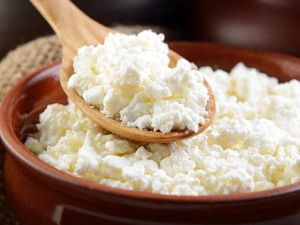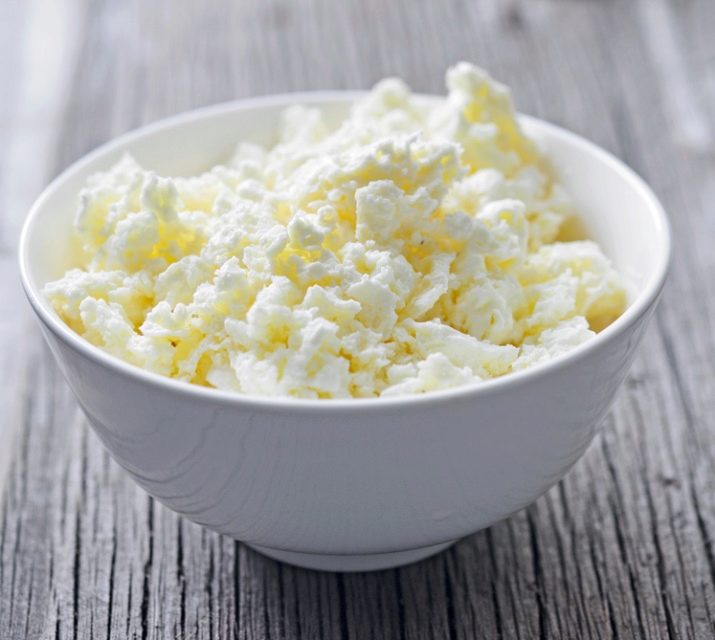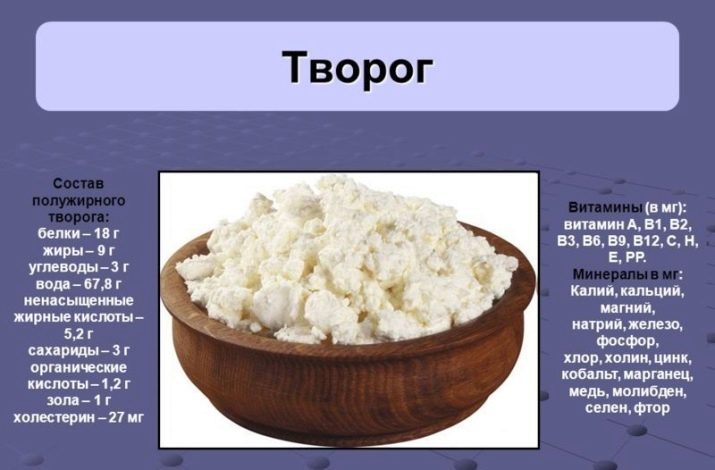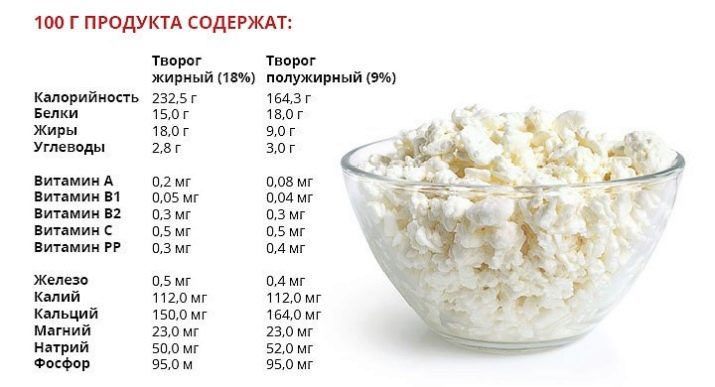Cottage cheese for every day: features of use, benefits and harms

Consumption of dairy products, including cottage cheese, is approved by many experts. But there is also an opposite opinion, which is shared by a certain number of people. Understanding all this can be quite difficult if there is no quality information.

Peculiarities
Cottage cheese is highly valued by many people and brings undoubted benefits. It is especially great when the body is developing, because at this moment such a product helps the formation of cells and an increase in muscle mass. These properties allow us to recommend the use of cottage cheese:
- actively involved in sports and physical education;
- pregnant women;
- with lactation;
- in childhood and during recovery from serious illnesses.


Chemical composition and characteristics
Fat-free cottage cheese is the most useful for people. It should still be remembered that even it contains up to 2% fat. Such a product can be eaten every day by an adult in a volume of up to 0.25 kg. The corresponding portion includes:
- approximately 30 g of protein, almost 100% of which will be digested;
- up to 7 g of carbohydrates, allowing you to get enough energy and get rid of the feeling of hunger;
- up to 4 g of fat, not higher.
The presence of various kinds of microelements is also quite large. The same 250 g of fat-free cottage cheese covers 1/3 of the daily need for phosphorus, selenium and sodium. Therefore, the benefits of the product are associated with the stabilization of the action of the gallbladder, heart and blood vessels, kidneys. The requirements for B vitamins will be covered by 25%.Therefore, the positive effect will also affect the nails, skin, hair and nervous system.

Due to the presence of calcium, it is possible to help the development of bone tissue. If cottage cheese is a frequent food on the plate of adults (especially the elderly) people, they are less threatened with osteoporosis. In addition, it is worth noting that this product contains:
- potassium;
- zinc;
- magnesium.

When exactly is there
Quite a few people eat cottage cheese daily due to personal preference. After all, this is a really tasty and emotionally pleasant type of food. But a natural question arises, how not to harm your own health and get the maximum benefit. This problem is all the more relevant for those who wish to eat consciously and systematically. And here the opinion of nutritionists, endocrinologists is absolutely unambiguous: if you want to lose weight, eating cottage cheese in the morning is not useful, but harmful.
Moreover, the harm - that is, the risk of getting better instead of losing weight - can affect not only those who eat a lot of white milk dishes. But the use of the same portion in the afternoon is much more beneficial. Cottage cheese is very saturated with protein, and therefore its assimilation requires a significant expenditure of energy. It is impossible to accurately assess them; this would require a deep laboratory study of the metabolism of each person individually. But it is quite clear that such energy costs are higher than when consuming a comparable mass of fats or carbohydrates.
Casein is the slow protein that takes a long time to digest. Thanks to him, in the morning, the appetite returns to normal, and therefore it is easier to keep the physiological norm at breakfast. And if you still pre-load yourself in training, then the next day will be devoted to reducing body weight. In addition, the night will be calmer.Yes, and during wakefulness, the substances contained in the curd will reduce negative emotional phenomena.


Can cottage cheese be dangerous?
This question naturally asks a very large number of people. They know that many foods cause negative effects on their own or can be detrimental if some pathology is present. But - and this is very good - the answer is more likely to be negative. Cottage cheese itself can harm only when the body does not tolerate at least one of its components. However, even allergy sufferers can and should take the risk of trying very small portions to get around the restriction.
An alternative solution would be to use cottage cheese made from goat's milk. Unlike the usual product, there is no lactose. But this way of bypassing the allergic danger is sometimes too expensive. As for the shelf life, it is usually longer than other dairy products.
However, this rule does not apply to homemade loose cottage cheese and open packages - such products must be consumed within 72 hours maximum.

Additional Information
It happens that the cottage cheese is left warm for several hours. You do not need to throw it away - just use this mass for baking. High-temperature processing is guaranteed to destroy dangerous microorganisms. Both when buying and before cooking, you need to carefully evaluate the product. Any inclusions and bad smells are categorically unacceptable.
Impeccable quality cottage cheese:
- fresh (not only by the date of manufacture, but also in appearance);
- has a pleasant aroma;
- painted white with a slight yellow tint.
Important: homemade cottage cheese should be minimized for most people. And the point is not that it is worse or more expensive than a store product.The real danger is overnutrition. It poses a particular threat to a sedentary lifestyle. But the addition of berries and other plant products to the curd mass brings only benefits and improves the absorption of nutrients.


On the benefits and harms of cottage cheese, see below.

















